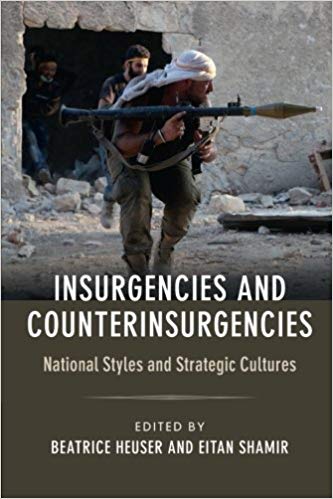Beyond national styles. Towards a connected history of Cold War counterinsurgency

This book is a major new study of the extent to which national mentalities, or 'ways of war', are responsible for 'national styles' of insurgency and counterinsurgency
Leading scholars examine the ways of war of particular insurgent movements, and the standard operational procedures of states and occupation forces to suppress them. Through case studies ranging from British, American and French counterinsurgency to the IRA and the Taliban, they show how 'national styles' evolve, influenced by transnational trends, ideas and practices. They examine whether we can identify a tendency to resort to a particular pattern of fighting and, if so, whether this is dictated by constants such as geography and climate, or by the available options, or else whether there exists a particular 'strategic culture' or 'national style'. Their findings show that 'national style' is not eternal but can undergo fundamental transformations.

Available in:
Regions and themes
Share
Related centers and programs
Discover our other research centers and programsFind out more
Discover all our analysesThe Franco-German Brigade and the Revival of European Defense
One thing has been clear since Donald Trump's return to the White House: the very existence of the European unification project is threatened. Unless it develops a sovereign defense policy to counter the war in Ukraine and the weakening of American security guarantees, the European Union will continue to see its internal cohesion and external attractiveness wane.
Taking the Pulse: Can Europeans Build Their Independent Extended Nuclear Deterrent?
Confronted with a U.S. disengagement and the Russian threat, Europeans are reconsidering their stance on nuclear deterrence. Given the capabilities of the French and British arsenals, can Europe develop an independent nuclear deterrent?

RAMSES 2024. A World to Be Remade
For its 42nd edition, RAMSES 2024 identifies three major challenges for 2024.
A Transatlantic Defense Industrial Base? Two Contrasting Views
The evolving landscape of global defense cooperation has brought the transatlantic relationship between the United States (US) and Europe into sharp focus. As geopolitical tensions rise and the threat environment becomes more complex, the question of how Europe can best ensure its security while navigating its relationship with the United States has become paramount. This double feature report offers two contrasting views on the dynamics of US-Europe defense industrial relations, highlighting the challenges and opportunities that lie ahead for both parties.









